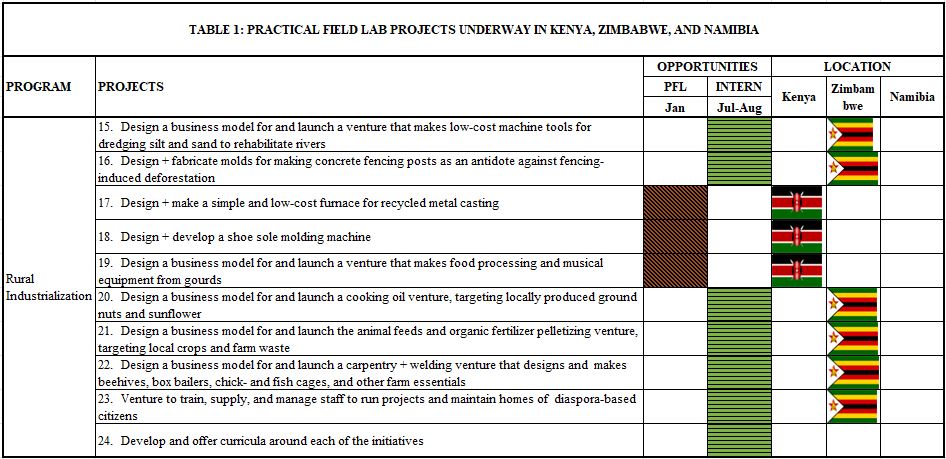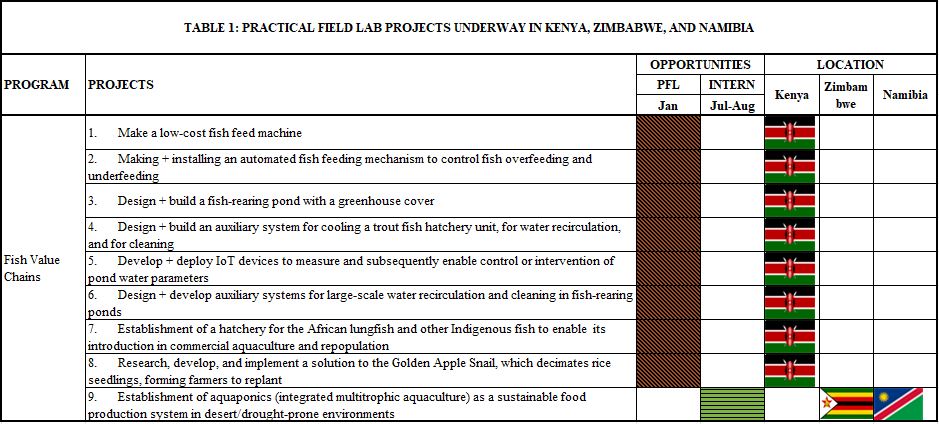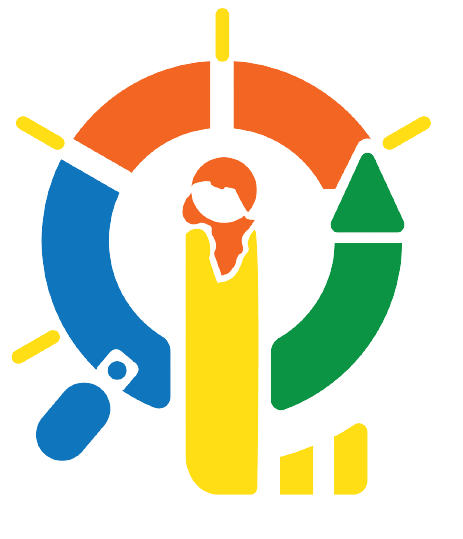PFL (Practical Field Lab) View it at https://originafrica.dreamhosters.com/
The call for 2025 Practical Field Lab
Theme: “Transformative Value Chains Development and Education”
Call for Applications
Directors: Prof. Chakanetsa Mavhunga (MIT) and Prof. Ndirangu Kioni (DeKUT)
Host: Origin Labs Dedan Kimathi University of Technology (DeKUT), Nyeri, Kenya
Dates: Saturday 4th January-Friday 31st January 2025
Deadline for Applications:Thursady 1st October 2024
Notification by: Tuesday 15th October 2024
All enquiries: admin@originlabsafrica.org
Problem Structure
Launched in January 2024, the Practical Field Lab (PFL) is an off-campus experiential learning curriculum where faculty and students engage in learning through problem-solving at the intersection of multiple systems of knowledge and practice. It is designed to:
- Equip participants to translate academic knowledge into skills for turning problems into opportunities for interdisciplinary creativity and problem-solving.
- Create synergies between traditional African practices of science, technology, innovation, and entrepreneurship.
Our focus is on building fish value chains, climate adaptation and mitigation, and rural industrialization.
The PFL has two tracks:
- PFL: The Field Class track
- PFL: The Internship Program track
The Field Class track
The Field Class is four weeks long in January and takes place in Nyeri, Kenya, and coincides with academic calendars across Africa and the world. Diverse teams of academic and non-academic instructors will guide students in hands-on learning through problem-solving at carefully scoped problem-sites. The class counts as 12 units or can be taken for no-credit. For 2025, the Field Class will only be offered in Nyeri (Kenya) with a smaller group (<10) in Marondera (Zimbabwe) linked virtually. From January 2026 onward, the Field Class will be conducted in Kenya, Zimbabwe, and Namibia between June 1st-August 31st. This Call for Applications is for the Field Class January 4th-31st 2025 only.
ICONIC IMAGE OF 2024 PFL: The 2025 PFL builds upon its successful pilot composed of DeKUT and MIT students and faculty in January 2024. Entitled “Calabashing: Innovating with Gourds,” the pilot focused on one organic material—the gourd, an icon of African culture and innovation.
The Internship Program track
The Internship Program is 8-12 weeks long between June 1st and August 31st in Kenya, Zimbabwe, and Namibia. (Longer stays are possible on a case-by-case basis). The program is designed for vocational, technical, and polytechnic college and university students, as well as youth without formal qualifications but with proven and verifiable practical experience. The students will embed in the ongoing projects listed in column #2 of Table 1, where they will be assigned specific responsibilities and performance assessment. The Call for Applications for this Internship Program will be announced in February 2025.
Table 1: Practical Field Lab Projects Underway in Kenya, Zimbabwe, and Namibia



Physical Requirements
All activities will be hands-on and will involve some form of physical exertion. Practical Field Lab activities in Kenya will be conducted in Nyeri, which is mountainous terrain defined by Mount Kenya and the Aberdare National Park. Nyeri buildings generally have no lifts or escalators. Those in Namibia will be conducted in a desert environment bordered by the Atlantic Ocean. The Zimbabwe activities will be conducted in fairly flat Savannah country.
Application requirements
Eligibility
All applicants must:
- Be 18 or older.
- Either apply as academic tract as a student in a certificate, diploma, or degree program at a nationally accredited college or university (both graduate and undergraduates are eligible to apply); Or apply as non-academic tract based on practical experience in the area one is applying for.
- Be in good academic standing.
- African and African diaspora students are especially encouraged to apply.
Application Instructions and Form
Please complete the application form by clicking HERE
Supporting Documents
1-page CV with names, emails, and phone numbers (WhatsApp if possible) of two referees. Format only in 12 pt Times New Roman Single Spaced—any other font or size will result in automatic disqualification.
Costs
The program fee of $1750 includes:
- Tuition fee
- Accommodation (equipped with kitchen)
- Ground transportation Nairobi-Nyeri and PFL-related activities only
Funding
MIT, DeKUT, and UNAM students can apply for funding to their university. All other applicants should apply to their universities or fund themselves from other sources.
Accommodation
All students will be staying in Grace Apartments, a stone’s throw from the DeKUT main gate. Each unit is fully furnished with:
- Bedroom with a bed, mattress, and bedding
- Bathroom (shower and toilet)
- Living area with a couch/sofa, coffee table, study table, and TV
- Kitchen equipped with necessary cooking appliances and kitchen accessories
- Wi-Fi
Recreation
Based on the 2019 census, the town of Nyeri is home to 140,338 people. It is within a short drive of three of Kenya’s foremost attractions. First, it is the home of the liberation war hero, Dedan Kimathi; most of the Mau Mau operations against British colonial rule took place in Nyeri County. Second, Nyeri town—and DeKUT—are just 1-hour 11 min drive or 34 miles (55 km) from Mount Kenya, and 15-minutes from Aberdare National Park. Both teem with rare wildlife species include black rhino, elephant, buffalo, giraffe, leopard, and lion, and dozens of other animals. While elephants, buffalo and other animals are found in Mount Kenya, it is most famous with mountaineers and hikers. Lastly, Nyeri is only 3-hour drive (93 miles/150km) from Nairobi, among many other exciting places. Nyeri is also home to fabulous local and international cuisine, from tea to latte to mukimo to a lot more besides. For those that want to eat fresh, the marketplace is in Nyeri town, where one also finds the sprawling Naivas supermarket.





